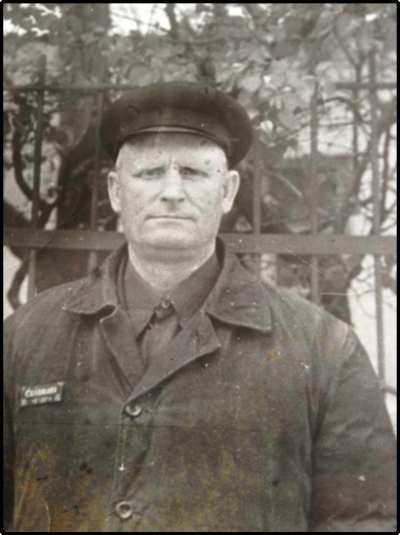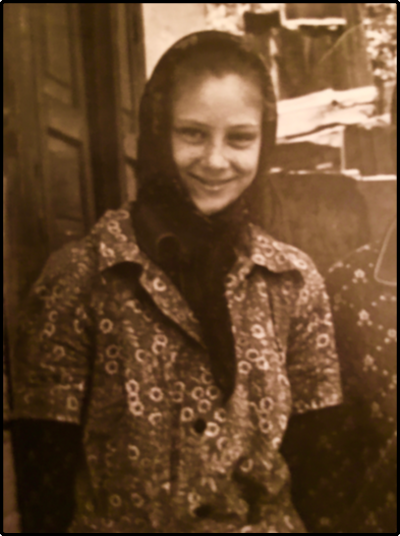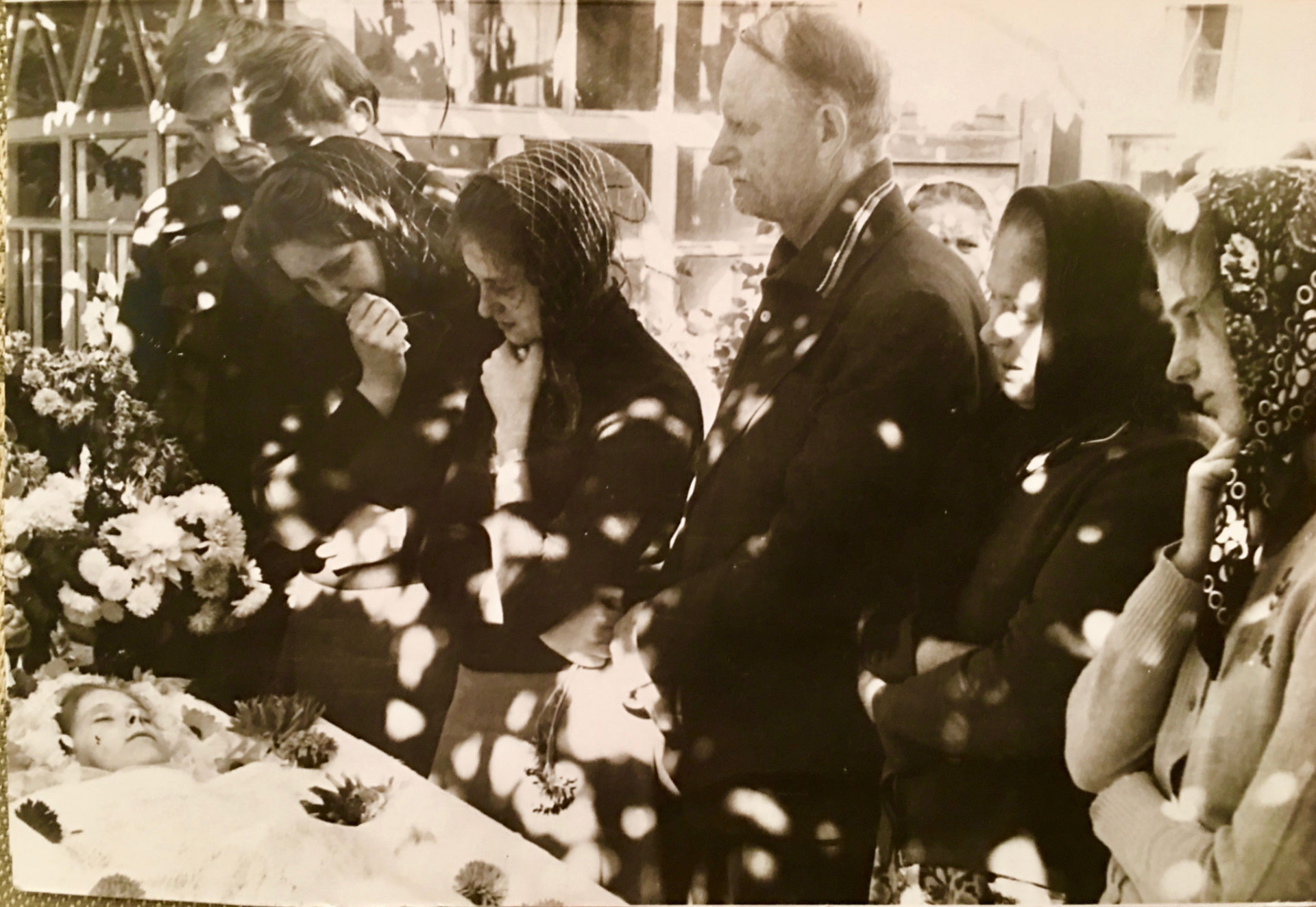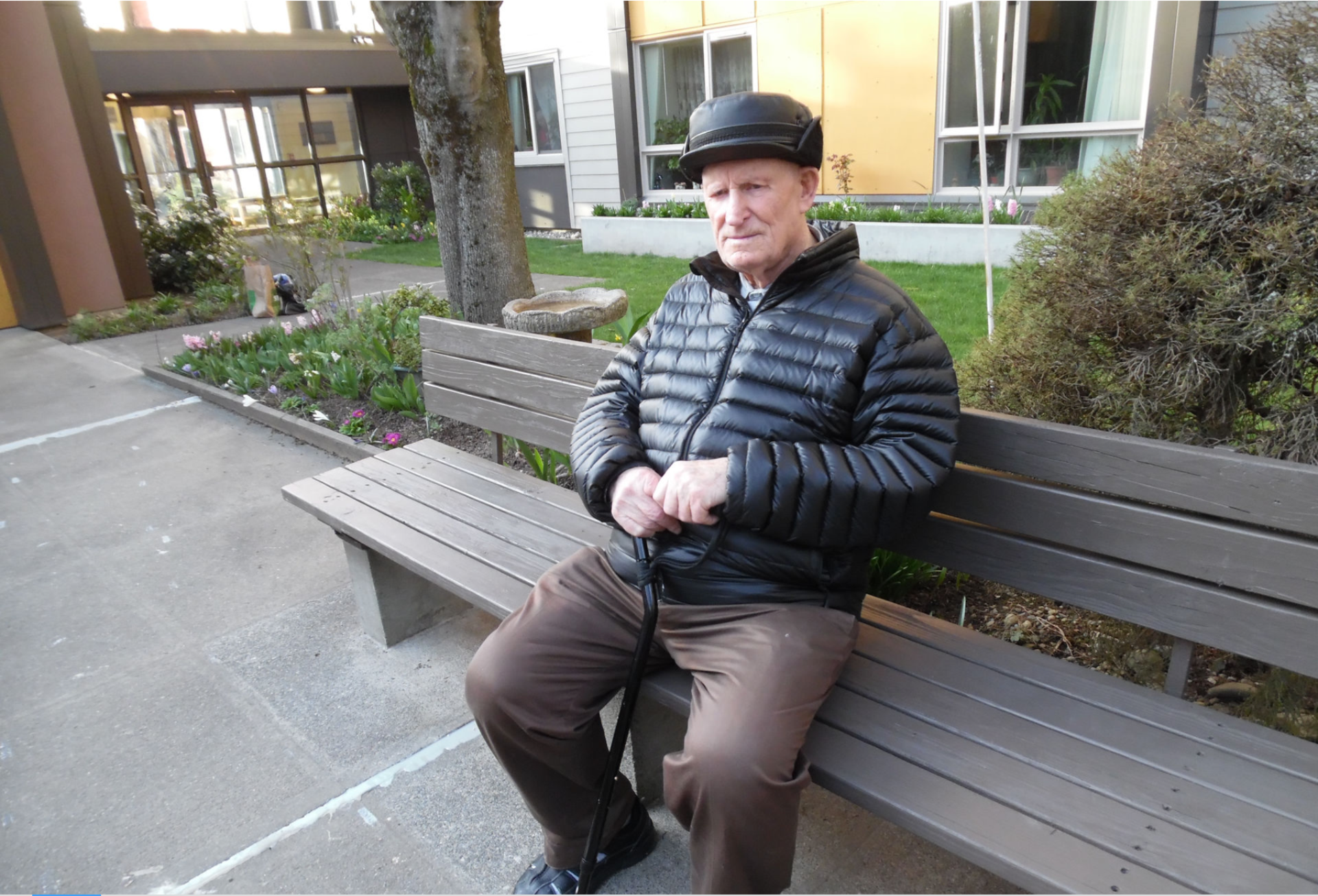My Sister Lena Died in Exile
My father, Stepan Gavrilovich Salamakha was born in 1929 in the town of Lyubar, Zhitomir region. In 1933 our grandfather Gavril Gavrilovich was arrested and disappeared without a trace. Grandma was left to fend for herself and her five children, my dad being the youngest. Back in those days Ukraine was struck by widespread famine, now known as “Holodomor”. Starving people died in the streets of the town having no one to take care of their dead bodies for weeks. Despite striking hunger God miraculously spared the lives of my father’s family. Grandma passed away only in 1964. In spite of all the hardships and adversities of the early 30s they found the strength to live and rejoice in the Lord’s presence.
In 1937 there was a wave of arrests all over the country; a lot of Christians were taken into custody and later died in Stalin’s camps located in Vorkuta in Kolyma regions. According to my father, a brother from Kamenets-Podolskiy came to the area in 1938 and led people to what was regarded as a true revival by those days’ standards. More than 300 people came to know Christ after a couple of years of his preaching. However, most local people were vehemently opposed to the believers. Brainwashed by atheistic propaganda they detested and hated the believers. It was hard to hold a church service even for 3 or 5 people because “the authorities” would often discover church meeting locations and would drive believers away giving them warnings and imposing fines. Christians would usually gather late at night, especially in bad weather, during snow storms or downpours, when KGB agents had a hard time spying on their targets. Nevertheless, believers, especially new-born Christians, were so fervent in their faith that they did not show any fear whatsoever. Sadly, around 8 brothers from my father’s church were eventually caught and sentenced to be shot. Churches were locked down and forbidden everywhere. Occasional official religious services were held in Moscow and Leningrad for a show in order to please foreign journalists and diplomats.
 Stepan Gavrilovich at the prison workshop
Stepan Gavrilovich at the prison workshop
In 1941, after the war had started, the Germans arrived in Lyubar. The invaders did not extend any prohibition to church meetings, therefore Christians could freely gather together to serve God and share the Good News with non-believers. As a result, 10 to 12 people repented and came to know God after each service. Gradually the Germans began to realize that the believers supported neither the Germans, nor the Soviet authority. That is when they started persecuting Christians, as well. Eventually Nazis shot two brothers and one sister from the local community.
In 1944 Soviet troops conquered Lyubar back, and later that year, on the 14th of April, my father was water-baptized. In order to exterminate the Pentecostal movement, the Soviet authorities decided to unite the Baptists and the Pentecostals under the same roof. Being quite aware of the inner disagreements between the two denominations the authorities succeeded in achieving their goal: the Pentecostal movement was forced to go underground. Pentecostal believers had to meet in secret, which led to mass arrests and prison sentences of 10 to 25 years. However, even such severe measures did not stop the Pentecostals from gathering and serving the Lord.
After Stalin’s death in 1953 Christians were given a little slack. Moreover, a lot of brothers and sisters from church were released following Khrushchev’s decree on amnesty. That time period is now referred to as Khrushchev “thaw”. The church was able to breathe more freely, joyfully welcoming back those who had survived through Stalin’s camps and had returned home. By the end of the 50s, though, persecutions were resumed with renewed vigour. Antireligious propaganda on the radio was deceitful and smear. It got to the point where psychiatrists began to claim that Pentecostals’ speaking in tongues was a psychological speech articulation disorder. Besides, Pentecostals were falsely accused of sacrificing children during religious gatherings, which was a blatant lie. Despite all the deception, the authorities succeeded in turning the people who blindly believed the mass media against the church. Christians, on the other hand, saw this situation as an opposition between the power of light and the power of darkness.
In 1961 in Lugansk region, where my family had been living for many years, all the Pentecostal ministers were arrested. KGB and militia officers located and chased away all those who insisted on gathering for church. The people who opened the doors of their homes for church meetings were severely fined. Christians were driven away from universities and were not allowed to take executive positions even if they were the best of the best and their work and study results were irreproachable. Children were often given bad grades at school and parents with many children did not receive any state allowance.
Moreover, KGB managed to send well-prepared agents to church services in order to lead church bodies to schism or controversy by causing arguments and disagreements among laymen. Fortunately, such intruders were often exposed.
In the early 60s our father was ordained to become a presbyter. Not only did he administer communion at our church, but he also travelled to other cities to minister at churches whose leaders had been arrested and couldn’t administer the sacrament of communion any longer. It was a common practice to hold such services in secret at 2 or 3 o’clock in the morning.
I would like to mention an amazing talent that the Lord had given to my father. This talent made him stand out and blessed our whole family and everyone around. When my parents got married all they possessed was a chair and a suitcase. A little later dad began to build a house. He did everything by himself without all the advanced technologies that we have nowadays. He built a big eight-room house including a bathroom and a kitchen. Practically all the furniture was hand-made, as well. The furniture was beautiful, and no one could tell dad’s pieces of workmanship apart from fashionable foreign counterparts. He had never been taught the craft of carpentry, the talent was purely God-given. As people say, he had a clever pair of hands! I remember when KGB officers came to our house to do the inventory, we had to hide some furniture, otherwise they would have found a pretext to take some of it away.
Father’s life was quite simple, he hardly ever had time for leisure. I would say that two of his favourite spare time activities were church ministry and woodwork. He was a devout man and was always faithful to his church and denomination. Church ministry was his life. He was quite firm and steadfast in his beliefs. I am confident that if he had had to give his life for God, he would have done it without a moment’s hesitation.
Father was a very strong man and possessed an amazing willpower. In our family his word was a law. No one could go against dad’s word, even though sometimes the desire to disobey was very tempting. Dad was always strict with us. When we were little mom would always sew us floral dresses to wear on Easter Sunday, and dad would never forget to measure the dresses’ length. They had to be long enough to cover our knees. Certainly, we didn’t like that, but we didn’t even try to talk him into changing the rules.
Not only was dad a strong believer but he was also quite virtuous and showed a lot of generosity to those around him. He did what the Word of God told him to do: “For this very reason, make every effort to add to your faith goodness” (2 Peter 1:5). He was always ready to help his neighbours and those who shared his faith. When people needed to have something repaired, dad would never refuse to give them a hand and he always did it at no charge. Our house was always full of people: believers from other towns and villages used to come and stay overnight. They were always served the best food and given the best place to sleep. It was a custom that never changed.
Years later, in 1973, father was arrested and sentenced to five years in prison and four years in exile. At first, he had to endure all the severities of life in prison. Even bread tasted like sand because prison cooks would add all kind of rubbish to the dough to increase its weight.
Nevertheless, dad worked at a prison workshop and proved himself as a diligent worker. Even his foreman said that they had never had such a responsible and hard-working man in their workshop before. Dad made furniture for prison offices and later he was requested to make furniture for the prison warden himself. The warden developed tremendous respect for our father and appointed him to the position of a foreman in the carpentry workshop. This appointment turned to be a great blessing not only for our father, but for other prisoners, as well. The prison warden and other officials allowed us to bring him parcels more frequently and even have prison visitations. It was an exceptional instance, indeed.
 Sister Lena during her illness in exile
Sister Lena during her illness in exile
Having served five years in prison dad was transported into exile to a small settlement called Zaigrayevo, it Buryatia. My mom and three younger daughters followed him to Siberia. In exile dad started off as a carpentry workshop foreman where he taught the workers his favourite craft. People started placing orders for furniture and soon the factory began to prosper. Even the mayor of the settlement invited father to make furniture for his house. That meeting changed the situation for the better. Dad was not followed by agents anymore, he was allowed to leave the town and once they let him travel all the way to Ukraine. The whole situation reminded us of the story of Joseph who was sold into slavery and later became a very important man in Egypt all because of his faithfulness to the Lord.
In Siberia our family lived in a small one-room flat in a dormitory. However, since the flat was on the first floor, dad was able to make a separate entrance which led straight into our hallway and he also added on a nice terrace. Later, when my parents were given a small piece of land, dad built a summer kitchen and a greenhouse where we all grew different vegetables. A lot of people came to see the result of our work. Even some officials would bring local people to show them “how people can live”, since all that most locals did was drink alcohol and idle away their time. It was a very good example for us to see how God showed His glory through my father and his gift. Many other people made a decision to follow the Lord based on my dad’s example.
The hardest trial that my family had to go through in exile was the disease and an early death of my sister Lena. When my family lived in a dormitory, they were completely dependent on electricity. The temperature outside would often go down to minus fifty degrees Celsius, so it was vitally important to have an opportunity to warm up your flat and cook hot food. One time the electricity was turned off for three days and all the water in the flat literally froze. It took some time for my parents to notice that the mishap took its toll on the health of their middle daughter. She didn’t feel any pain, she just felt weaker and weaker day by day. Gradually she stopped eating and was taken to hospital in Ulan-Ude and later back to Krasny Luch in Ukraine where the doctors diagnosed her with kidney failure. She had to use an oxygen cushion because she couldn’t breath well due to the excessive amount of liquid her body was developing. Lena didn’t suffer much before death. She often felt God’s presence through prayer. It was clear that God was helping her to leave the earth without pain and suffering. Lena was only 14 years old when she passed away. After her death there were 7 children left in our family.
We came back from exile in 1982 and dad was immediately appointed as a minister at the local church. At the very first meeting with the KGB agents dad was asked if his beliefs had changed. Dad answered: “I am still the same man, only now I believe in my God even more”. Then the agents threatened him: “Do you realize that we can lock you up and no one will ever see you again?” Dad replied: “You can even kill me if you want, but nothing will change my beliefs”. That year KGB threatened to sentence him to another term in prison if he hadn’t register his church. The KGB officers told my father that his church had American roots and he, therefore, was an American spy. He was often asked: “So, have you registered your church yet?” Dad would always answer: “What is registration? It is the same water baptism only with the permission of atheistic authorities. It is a prohibition to take underage children to church meetings, a prohibition of all Pentecostal traditional services, a prohibition to pray for the sick in hospitals, a prohibition to help financially those church-goers who are in need, a prohibition to have meetings with church members. What would such registration lead to?” Besides, the law of religious organizations registration was issued in 1929, the beginning of the most severe church persecutions by the Soviet authorities.
 Sister Lena’s funeral
Sister Lena’s funeral
The last time my dad met KGB agents was in 1985 when they threatened to disrupt a church service. That same year Gorbachev was appointed as the General Secretary of the Communist Party of the Soviet Union and “Perestroika” got underway. Church gatherings were not touched by the authorities anymore. In 1986 we started holding church services everywhere: at home, in the yard, in the streets, you name it. No one tried to interfere and prevent us from serving the Lord. In 1989 churches were allowed to officially rent cinemas and houses of culture in order to hold church services. For the first time in many years Christians gained a free access to minister at prisons, orphanages, nursing homes and hospitals. On multiple occasions dad was able to go to the prison where he had served the sentence fir his faith to tell inmates about the Lord. A lot of prisoners including persistent criminals repented and accepted God. One of the brothers who became a believer in prison had been sentenced to life imprisonment. After he had repented he applied for his case review and was later disincarcerated. Another prisoner who came to know Christ in jail, was able to obtain a permission to go to the USA in spite of his previous criminal record. A lot of people got married and had wonderful Christian families. Having cleaned the prison pool, dad and other brothers managed to hold baptism services for new believers right there.
In 1992 my parents and I moved to the USA. Later all my siblings joined us, as well. I was fortunate enough to graduate from a Bible school in Vilnius before we moved to the US. We didn’t want to move, dad was especially against the idea because after Perestroika believers acquired a lot of freedom and dad had a lot of church work. Then there was a situation with the State Committee of the State Emergency which made my dad reconsider his intentions. People were afraid that the situation would change for the worse. Nevertheless, after the 1991 August soviet coup d’etat attempt was stamped out Christians gained even more freedoms. I remember when the Soviet Union fell apart my father became very cheerful and optimistic.
At the relatives’ request dad filled out the application form requesting permission to move to the USA. Two years later, when we least expected it, we received the parcel with our documents and an official permission to emigrate. In America dad served in a Russian speaking church called “Vinnytsya Churh” where he eventually became the senior pastor’s helper.
 Stepan Gavrilovich in the USA, in 2015
Stepan Gavrilovich in the USA, in 2015
Father went to his heavenly home at the age of 87. During his ten last and hardest days in hospital I was a witness of his patience and an amazing ability to stay at peace despite physical suffering. When it was especially difficult, he sang to the Lord. Dad passed away quite unexpectedly and quickly. It happened on December 21, 2016. He had been very active to the very last day of his life. He used to say: “I don’t want to end up helpless and forced to be taken care of”. God heard his cry and accepted Him in His heavenly dwelling place!
About the project Pomnim (We Remember): We gather true stories of the believers who went through persecution during the Soviet epoch. We are going to publish them on this website. Besides we are working on a book. MORE INFO
Follow us on our website and on social media (Facebook, Vkontakte, Odnoklassniki, Instagram).
Are you willing to support the project and help us gather more stories (while survived witnesses are still living)? Do not hesitate, do it now. Time is precious. Literally. You can make a donation by using PayPal service www.paypal.me/pomnim

